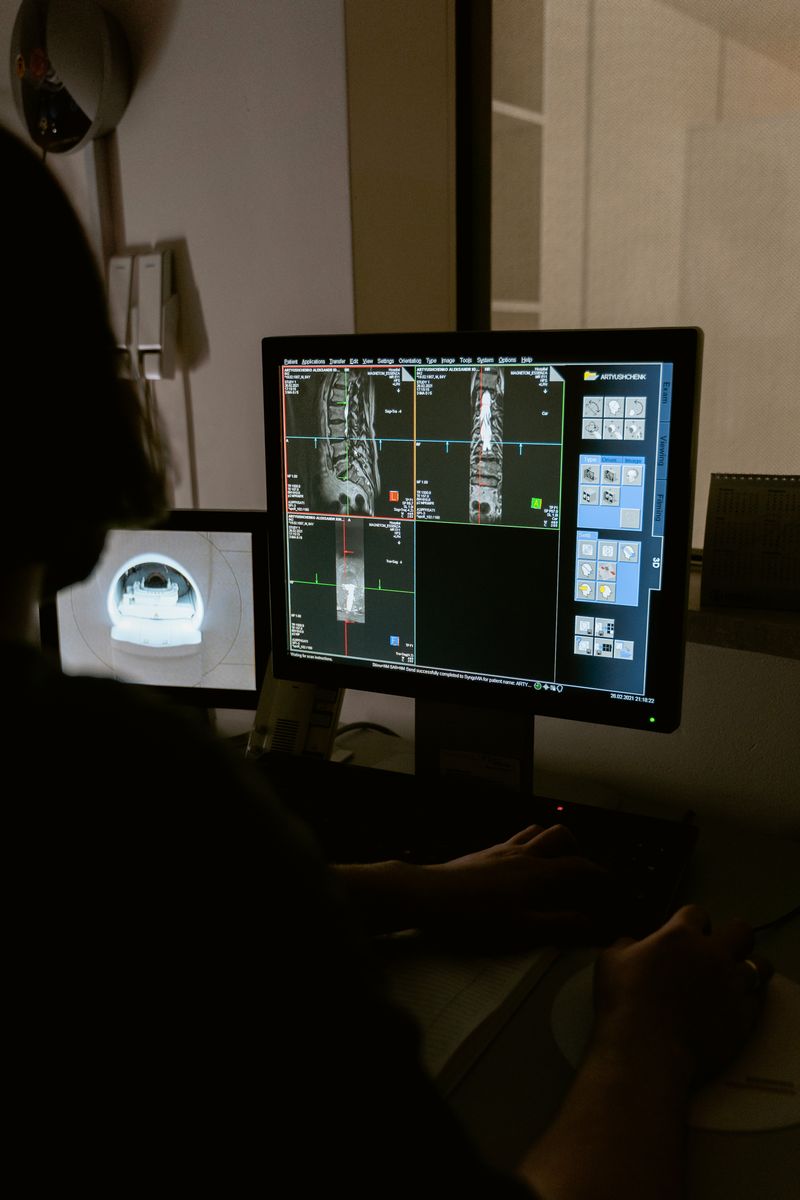Low Level Radioactive Isotopes Found in Home After Raid in Sydney’s South
Australian Border Force (ABF) Raids Arncliffe Home
The Australian Border Force (ABF) officers and hazmat teams raided a unit in Arncliffe, located in Sydney’s south, after reports of “low-level radioactive isotopes” being present. The raid took place at approximately 9 am and lasted for several hours. The house was cordoned off with tape declaring it a “contaminated hot zone.”
Identification of Radioactive Material
Fire and Rescue NSW (FRNSW) has confirmed the discovery of the radioactive material, commonly used in various industries. The material was found in suitable and effective containers, with no release of radiation, according to FRNSW. As a precautionary measure, a 10-metre exclusion zone was established around the property, and the material was sealed without incident. Three individuals living at the address were taken to the hospital for observation, although there was no evidence of exposure. Nearby residents, who were evacuated as a precaution, have since safely returned to their homes.
Collaboration of Authoritative Agencies
The Environment Protection Authority (EPA), Australian Nuclear Science and Technology Organisation (ANSTO), and ABF conducted thorough testing and confirmed regular readings in the area, declaring it safe. Ongoing investigations are being conducted to determine further details about the presence of nuclear isotopes in the dwelling.
Reactions and Impact on the Community
The raid caused inconvenience to residents, as Kelsey Street was blocked off for the majority of the day. One resident expressed concern about the incident, stating that it was unexpected in their quiet neighborhood. NSW Police, along with officers in hazmat suits from Fire and Rescue NSW, were present at the scene to investigate the home.
Health Hazards of Radioactive Isotopes
Radioactive isotopes have the potential to pose health hazards if not handled properly or if there is exposure to radiation. While the exact nature and quantity of the radioactive isotopes found in the Arncliffe home have not been disclosed, it is crucial to address the potential risks associated with such substances.
Exposure to radioactive materials can have various health effects, ranging from mild symptoms to severe illnesses, including radiation sickness and an increased risk of cancer. The severity of these effects depends on factors such as the type of radioactive material, the duration and intensity of exposure, and individual susceptibility.
To minimize the risks associated with radioactive isotopes, it is essential to adhere to strict safety protocols and guidelines. Authorities conducting raids and handling such materials should receive specialized training and utilize proper protective equipment to prevent exposure and the release of radiation into the environment.
Editorial: Strengthening Radioactive Material Regulations
The discovery of low-level radioactive isotopes in a residential area highlights the importance of robust regulations surrounding the storage, transportation, and handling of radioactive materials. While the authorities have assured the public that there was no release of radiation and that the area is safe, incidents like these underscore the need for continuous scrutiny and improvement of safety measures.
It is imperative that the government, regulatory bodies, scientific communities, and industry stakeholders collaborate to enhance existing protocols and ensure the safe management of radioactive materials. This includes rigorous inspections, stringent licensing requirements, secure storage facilities, and comprehensive training programs for individuals involved in handling such substances.
Public awareness and education are also crucial in enabling communities to understand the potential risks associated with radioactive materials and the necessary precautions to mitigate those risks. Regular communication from authorities about safety procedures and emergency response plans can help build trust and preparedness among residents.
Advice on Dealing with Radioactive Materials
If you suspect the presence of radioactive materials in your surroundings or come into contact with potentially hazardous substances, it is essential to take appropriate precautions.
1. Safety First
Ensure your immediate safety by moving away from the source of radiation. If possible, try to create distance between yourself and the suspected material. Evacuate the area if necessary and follow the instructions of emergency responders.
2. Contact Authorities
Report the situation to the relevant authorities, such as local law enforcement or emergency services. Provide them with as much information as possible about the suspected material and its location.
3. Follow Instructions
During emergencies involving radioactive materials, it is crucial to follow the instructions provided by emergency responders and authorities. This may include evacuation, sheltering in place, or taking protective measures as directed.
4. Minimize Exposure
If you have potentially been exposed to radioactive materials, take steps to minimize your exposure. This may involve removing contaminated clothing, showering with soap and water, and seeking medical attention if necessary.
5. Stay Informed
Keep yourself updated on the latest information and advisories from authorities. Local news outlets, government websites, and official social media accounts are valuable sources of information during such incidents.
Remember, while incidents involving radioactive materials are rare, it is essential to be prepared and informed about the appropriate actions to take in case of an emergency.

<< photo by MART PRODUCTION >>
The image is for illustrative purposes only and does not depict the actual situation.




